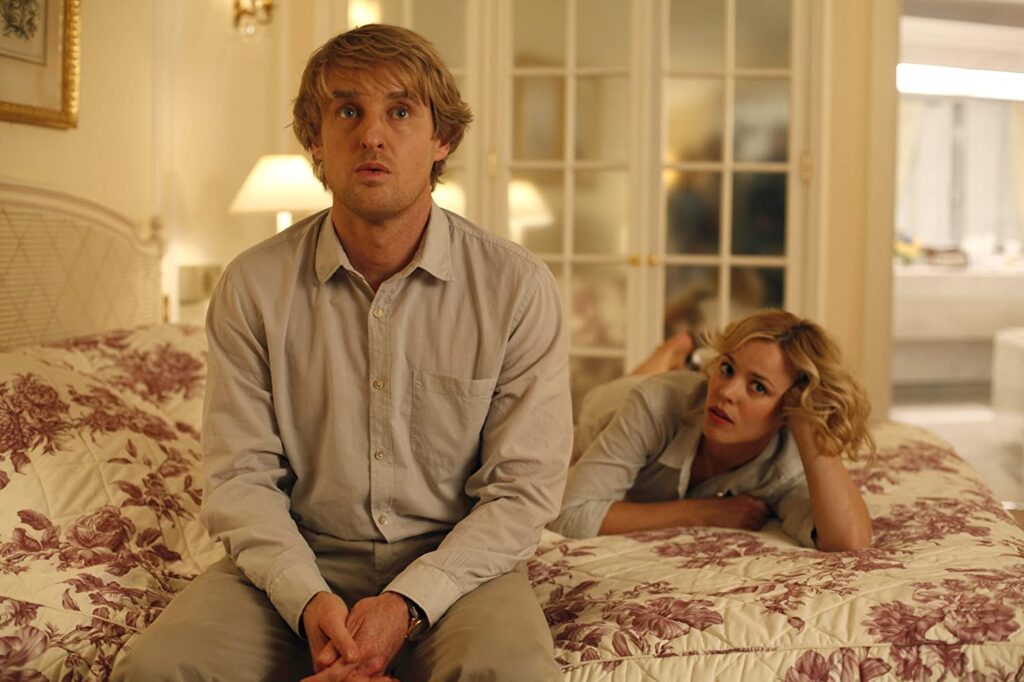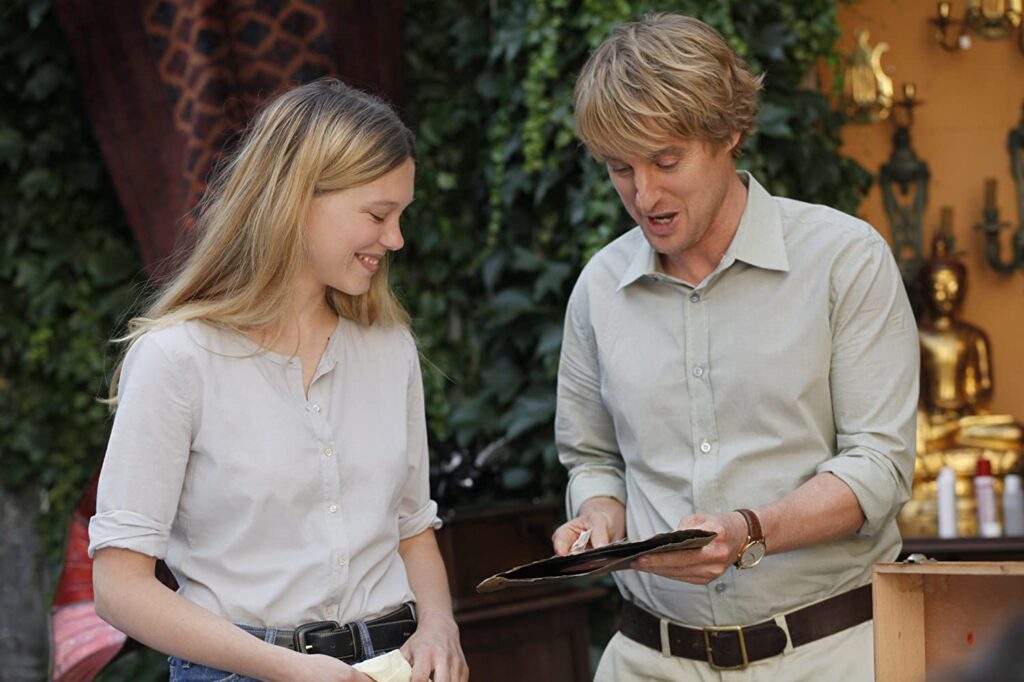“Midnight in Paris,” the 2011 Woody Allen film, is filled with nostalgia and longing. The film uses Paris as a backdrop the way a painter uses a fond childhood memory for inspiration; it’s not the romance of the city that is the point here, nor even the city, but the healing power of long-lost dreams. The secret is that the film doesn’t even know it. It’s opening, filled with a minutes-long montage of sights of Paris, positions itself as a standard romantic comedy, set amidst the backdrop of France’s pièce de résistance. The pairing of Owen Wilson and Rachel McAdams, who had wonderful chemistry in “Wedding Crashers,” furthers this illusion. But the film is about growth, about dreams, and about finding acceptance—even if the mechanism for this is fantasy dipped in romanticism.
The premise of “Midnight in Paris” is a vacationing family in its namesake city. Gil (Owen Wilson) is a minor Hollywood screenwriter in town with his fiancée Inez (Rachel McAdams) and her parents (Kurt Fuller and Mimi Kennedy). Inez and her family are rich. They wear expensive things, talk with ownership of cultural ideals, and refer to maids and wait staff in their Paris hotel as ‘the help.’ Gil is in stark contrast: he likes to talk to people, really talk, and is fascinated with literature and eras past. Inez and her society friends Carol (Nina Arianda) and Paul (Michael Sheen), thumb their noses at Gil. Paul is what Gil refers to as a pseudo-intellectual. He knows every historical detail of Rodan’s ‘The Thinker’ and Monet’s ‘The Water Lily Pond,’ but feels none of it. Like most arrogant people, art and culture are something to be owned, not appreciated.
All these people are set up against Gil, who enjoys things in a simplistic and romantic fashion, which his family and their friends scoff at, and, through varying forms of passive aggression, outwardly demean. But Gil’s life changes one night at midnight, when an antique car picks him up as he sits on some steps, and he soon meets F. Scott Fitzgerald, Ernest Hemmingway, Pablo Picasso, and more. Among them is the beautiful and equally nostalgic Adriana (Marion Cotillard), whom Gil quickly falls for. His time warp family and his real one in obvious contrast, “Midnight in Paris” sets its hand at approaching its whimsical answer to finding oneself while realizing the grass isn’t always greener on the other side.
Allen’s film is well produced, from the cinematography, to the sets, to the acting. Paris is presented in vibrant colors, and even in the rain appears to have its hallmark beauty. It’s through Gil that we see this beauty, from lonely cafés to rain soaked bridges. The Eiffel Tower looms overhead, but its the underbelly of the city Gil thirsts after—a romantic Paris, a real Paris, one filled with beautiful architecture, vintage music lovers, and people that talk of deep ideals, which ironically are as deep as they are because they are so simple.

Wilson carries the film suitably, holding on to that quick-witted everyman quality that made his more outlandish comedies gel, while adding an old soul to Gil that works without ever approaching pretension. There’s a pain to Gil, the pain not being appreciated or ‘gotten,’ which Wilson is able to imbue with sometimes just a look, or, more forwardly, and appreciation of literature and music that stems from pure passion. A scene where he talks to a young street vendor about Cole Porter (whom he has incidentally met in one of his ‘midnight trips’), highlights this well, as does the film’s close, amidst a rain-soaked bridge. Inez and her family can’t understand why Gil prefers to walk through Paris and not just ‘take a taxi.’ The answer is in Gil’s romanticism, personified by the 1920s people he meets. Through his interactions with the people he meets after midnight, he starts to reclaim himself, gaining the courage to show his novel to them, these literary giants, when he won’t even show it to his soon-to-be wife. There’s a reason for that. These people see Gil as an aspiring equal; Inez sees his passion and soul as annoying quirks to be tolerated but never encouraged.
The other elements of the production are well done, especially the chemistry between Wilson and Cotillard, as well as performances of key literary by actors such as Tom Hiddleston and Academy Award-winner Kathy Bates. But the real acting triumph goes to McAdams, who creates a truly unpleasant character and outdoes many of her other performances. It takes a great actress to thrown herself into a role like this, and McAdams delivers, shedding more likable performances in films like “About Time” and “Wedding Crashers,” though she’s a plot mechanism and not much more.
If criticisms do come, it is not in the fantastical time warp aspect of “Midnight in Paris,” but rather its in-your-face exposition, where it feels at times that director Allen doesn’t trust the audience to infer their own conclusions and tells, rather than shows, Gil’s growth. The climax of the film, in a heated exchange between Inez and Gil, is, of course, predictable, as is the film’s conclusion. But Allen has trouble at times juggling the film’s coming-of-age catharses and his romantic entanglements, which are often one and the same.
But, at the end of the day, “Midnight in Paris” is a wonderful exploration of wonderful things. It’s magical, romantic, and has a healing power of its own. For a film positioned as a lighthearted comedy, its deals with deep ideas and touches your soul. It won Allen an Oscar; but it’s greatest achievement is in realizing that connecting to the pieces of ourselves that seem lost in the wind can be as simple as finding your place and taking a look in the mirror. With prosaic and romantic filmmaking, “Midnight in Paris” allows us to do just that.


